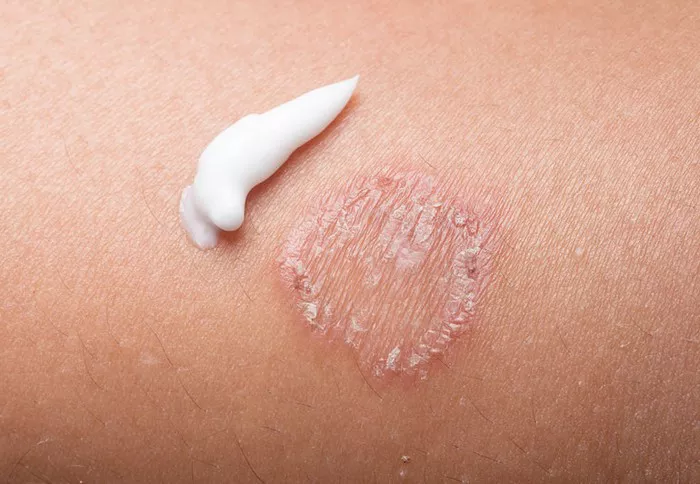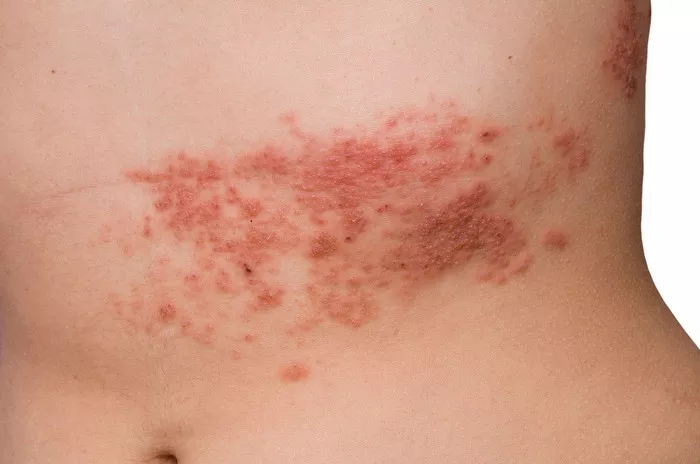Eczema is a common skin condition that causes inflammation, redness, and intense itching. It can appear anywhere on the body and can be mild or severe, with itching often being one of the most bothersome symptoms. If you suffer from eczema, you know how irritating and uncomfortable the itching can be. Fortunately, there are several ways to manage the itching and ease your discomfort. In this article, we will discuss effective strategies for dealing with itchy eczema, including home remedies, lifestyle changes, and medical treatments.
Understanding Eczema and Itching
Before diving into the solutions, it’s important to understand why eczema causes itching. Eczema is an inflammatory skin condition that results from an overactive immune response. When the skin becomes irritated, it triggers the release of histamines, chemicals that cause itching. The itching can lead to a vicious cycle: scratching to relieve the itch leads to more irritation, which worsens the itch and inflammation. This is known as the “itch-scratch cycle.”
Eczema can be triggered by various factors, including allergens, dry skin, environmental factors, stress, and certain foods. Identifying and managing your specific triggers is key to preventing flare-ups and reducing itching.
Moisturize Your Skin Regularly
One of the best ways to prevent and soothe itchy eczema is to keep your skin moisturized. Dry skin is a major contributor to eczema flare-ups, and when your skin is dry, it becomes more prone to irritation and itching. Applying a thick, fragrance-free moisturizer helps create a barrier on the skin, locking in moisture and preventing dryness.
Here are some tips for effective moisturizing:
Use a fragrance-free moisturizer: Look for products labeled “for sensitive skin” or “hypoallergenic” to avoid any added fragrances or chemicals that might irritate the skin.
Apply moisturizer immediately after bathing: Pat your skin dry with a towel, and while your skin is still slightly damp, apply a generous amount of moisturizer to lock in moisture.
Reapply moisturizer throughout the day: In dry or cold weather, your skin may need extra hydration. Apply moisturizer as needed, especially to areas that are prone to itching.
Take Lukewarm Baths
Bathing can be soothing for itchy eczema, but it’s important to avoid hot water, which can strip the skin of its natural oils and worsen dryness. Instead, opt for lukewarm water, as it is less irritating to the skin.
Here are some tips for taking eczema-friendly baths:
Add oatmeal or baking soda: Soaking in colloidal oatmeal or baking soda can help calm inflammation and reduce itching. You can find oatmeal bath products at most pharmacies or make your own by grinding plain oatmeal into a fine powder and adding it to your bath.
Avoid harsh soaps: Choose gentle, fragrance-free cleansers that won’t strip your skin of moisture. Harsh soaps can irritate the skin and exacerbate eczema symptoms.
Limit bath time: While baths can be soothing, it’s best to limit the time spent in the water to 10-15 minutes. Prolonged exposure to water can make the skin dry out.
Use Anti-Itch Creams and Ointments
There are several topical treatments that can help reduce itching and inflammation. These treatments are available over the counter or by prescription, depending on the severity of your eczema.
Some effective options include:
Hydrocortisone cream: This is a mild corticosteroid that can reduce inflammation and relieve itching. It is available over the counter in lower strengths, but stronger versions may require a prescription.
Calamine lotion: This is a soothing lotion that can help relieve itching caused by eczema. It has a cooling effect on the skin, which can temporarily reduce the sensation of itching.
Coal tar ointment: Coal tar is a thick, sticky ointment that can help reduce itching and inflammation. It is often used for chronic eczema or other skin conditions like psoriasis.
Topical calcineurin inhibitors: These are prescription medications that can reduce inflammation and itching. They are often used for more severe eczema or for sensitive areas like the face and eyelids.
Always follow your doctor’s advice when using any medication, and never apply corticosteroids to broken or infected skin.
Wear Soft, Breathable Clothing
The fabric you wear can have a big impact on eczema. Rough or synthetic fabrics like wool, polyester, and nylon can irritate the skin and make itching worse. Instead, opt for soft, natural fabrics like cotton, which allow the skin to breathe and reduce friction.
Here are some clothing tips to help manage itchy eczema:
Wear loose-fitting clothes: Tight clothes can rub against the skin and aggravate itching. Loose clothing allows air to circulate, reducing the likelihood of irritation.
Choose cotton fabrics: Cotton is soft and breathable, making it a great choice for eczema-prone skin. Avoid wearing clothes made from scratchy materials like wool or synthetic fabrics.
Avoid tight shoes or socks: Tight footwear can irritate the skin on your feet, causing itching. Opt for soft, breathable socks made from cotton or moisture-wicking materials.
Avoid Scratching
Although it may be difficult, one of the most important things you can do to manage itchy eczema is to avoid scratching. Scratching not only worsens the itch-scratch cycle but can also cause skin damage, leading to infections and scarring.
Here are some strategies to help break the itch-scratch cycle:
Keep your nails trimmed: Short nails reduce the risk of scratching too deeply and causing skin damage.
Use a cold compress: Applying a cold compress to itchy areas can provide immediate relief without the need to scratch.
Wear cotton gloves at night: If you tend to scratch in your sleep, wearing soft cotton gloves can help prevent damage to the skin.
Use anti-itch creams: As mentioned earlier, topical treatments can help reduce itching, making it less likely that you’ll feel the urge to scratch.
Identify and Avoid Triggers
Eczema is often triggered by environmental factors, allergens, or irritants. Identifying and avoiding these triggers can help reduce flare-ups and alleviate itching.
Common eczema triggers include:
Allergens: Pollen, dust mites, pet dander, and mold can all trigger eczema flare-ups. Consider using an air purifier, washing your bedding frequently, and avoiding contact with known allergens.
Dry air: Cold, dry weather can make eczema worse by stripping moisture from the skin. Using a humidifier in your home can help maintain a comfortable level of humidity and prevent your skin from drying out.
Harsh chemicals: Household cleaning products, perfumes, and other chemicals can irritate the skin. Choose gentle, fragrance-free products whenever possible.
Certain foods: Some people find that certain foods, such as dairy, nuts, or gluten, can trigger eczema flare-ups. If you suspect a food trigger, talk to your doctor about conducting an elimination diet or allergy testing.
Manage Stress
Stress is a known trigger for eczema flare-ups. When you’re stressed, your body produces cortisol, which can trigger inflammation and worsen eczema symptoms. Finding ways to manage stress can help reduce flare-ups and improve overall skin health.
Here are some stress-reducing activities you can try:
Exercise: Regular physical activity can help reduce stress and improve overall health.
Relaxation techniques: Practices like deep breathing, meditation, and yoga can help calm your mind and reduce stress.
Adequate sleep: Poor sleep can increase stress levels, so aim for 7-9 hours of restful sleep each night.
Seek Professional Help if Necessary
If your eczema symptoms are severe or not responding to over-the-counter treatments, it’s important to seek medical advice. A dermatologist can help you find the right treatment plan for your skin and may prescribe stronger medications if necessary.
Some treatment options a doctor may recommend include:
Prescription-strength corticosteroids: These can help control inflammation and itching more effectively than over-the-counter versions.
Phototherapy: This treatment uses UV light to help reduce eczema symptoms and inflammation.
Oral medications: In severe cases, oral medications like immunosuppressants or biologics may be prescribed to control eczema flare-ups.
Conclusion
Dealing with itchy eczema can be challenging, but there are many strategies that can help soothe your skin and reduce discomfort. By moisturizing regularly, avoiding triggers, using the right treatments, and managing stress, you can control the symptoms of eczema and prevent flare-ups. If over-the-counter treatments aren’t enough, consult a healthcare professional for more specialized care. With the right approach, it’s possible to manage eczema and lead a more comfortable, itch-free life.
Related topics:



























